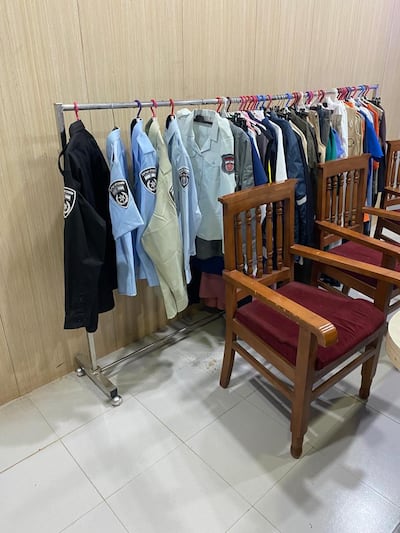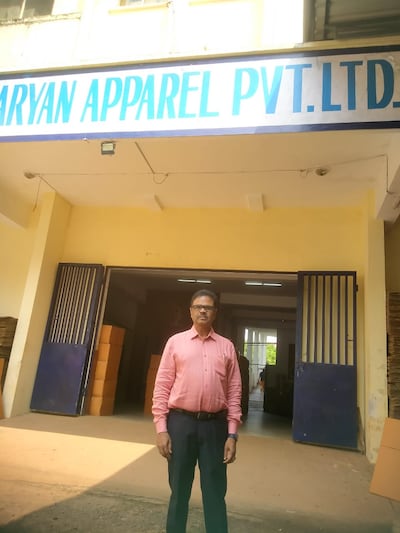An Indian apparel company supplying uniforms to the Israeli police has decided to cut business ties with the force in protest against the bombing of a hospital in Gaza that killed at least 450 people, mostly children.
Maryan Apparel Private Limited in Kannur in the southern state of Kerala has been making 100,000 uniforms a year – shirts and trousers – for the Israeli police force since 2015.
The decision was taken on Wednesday, a day after Al Ahli Arab Hospital in the centre of Gaza City – which was sheltering thousands of people who had been forcibly displaced by Israel – was bombed on Tuesday night. It prompted the company to reconsider its ties with the police force because the company “doesn't support attacks on civilians”.
“The hospital attack really disturbed us. Children, women, the common people are dying,” company director Thomas Olickal told The National.
"They’re refusing food, electricity, and hospital treatment. Nobody can accept this. Fighting with two armies is OK, but killing common people is unacceptable. It is a moral decision,” he said.
The company's present commitments will be fulfilled under normal business agreements, but further orders will not be taken “until there is peace”.
“We are going to inform them,” Mr Olickal added.

His company had received an additional order for 50,000 units after the surprise attack by Hamas militants on Israel on October 7 that left at least 1,400 people dead.
For a week, about 1,500 workers – all women – were working round the clock to complete the order.
“They informed us that they need an extra supply of 50,000 pieces, but looking at the current situation, they’re killing innocent people in Gaza, we have decided to not make uniforms,” the 65-year-old businessman said.

The company headquarters are in Mumbai and the uniform-making unit has been functioning in Kannur since 2008.
It specialises in making uniforms of fire-retardant fabric for workers in petroleum refineries as well as hospitals.
The company also makes uniforms for the National Guard and Fire Service of Kuwait, Qatar Air Force, Aramco of Saudi Arabia, and the Philippines.
“We make about 250,000 units of uniform pieces every month. But Israelis order about 100,000 annually. It is only 2 per cent to 3 per cent of the business. That will not affect us,” Mr Olickal said.


